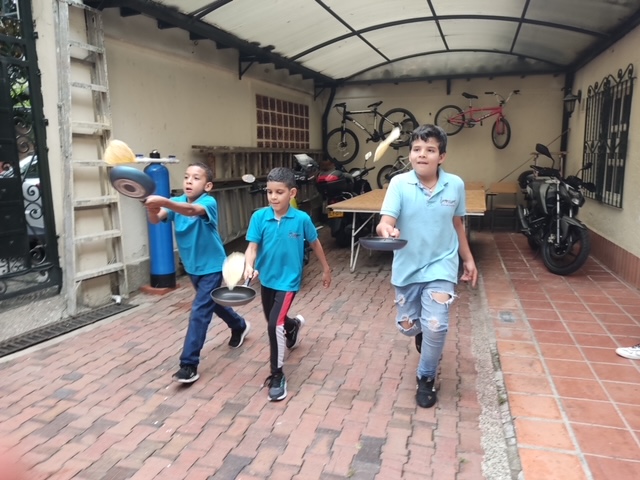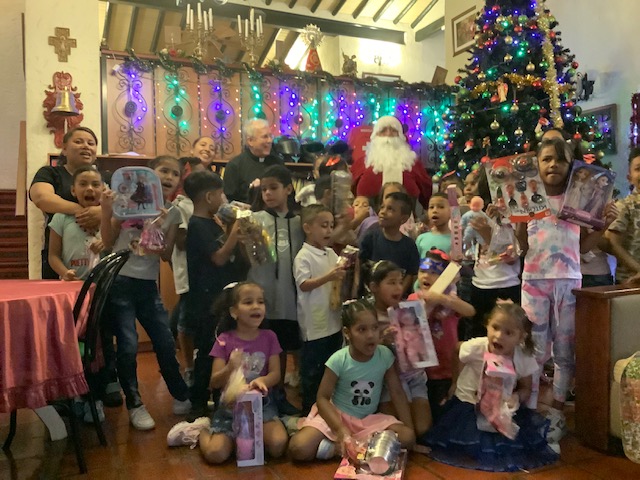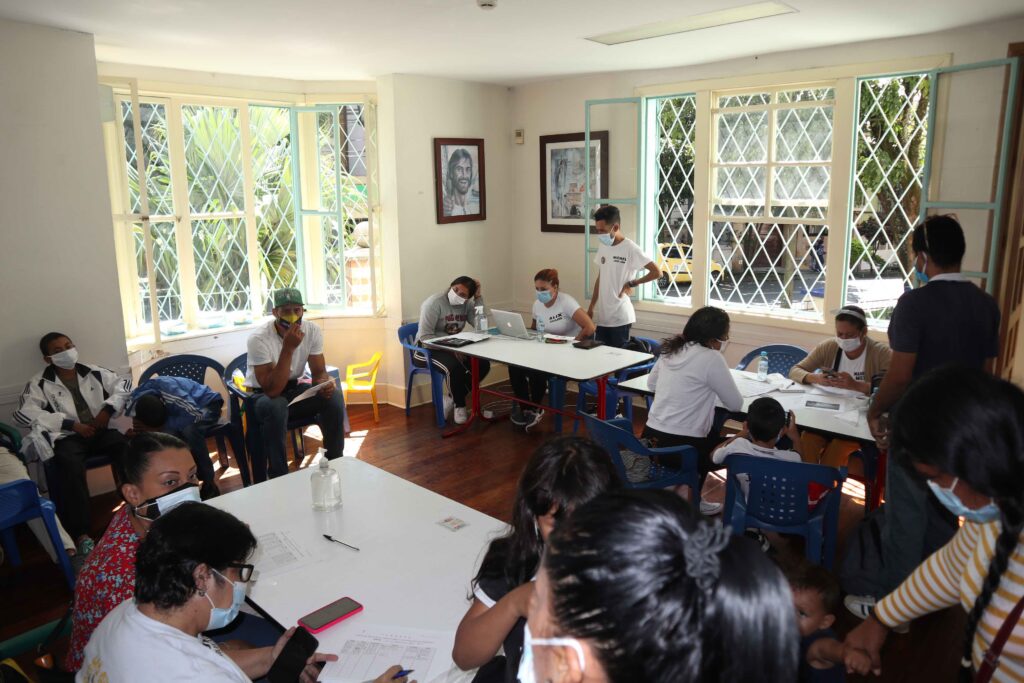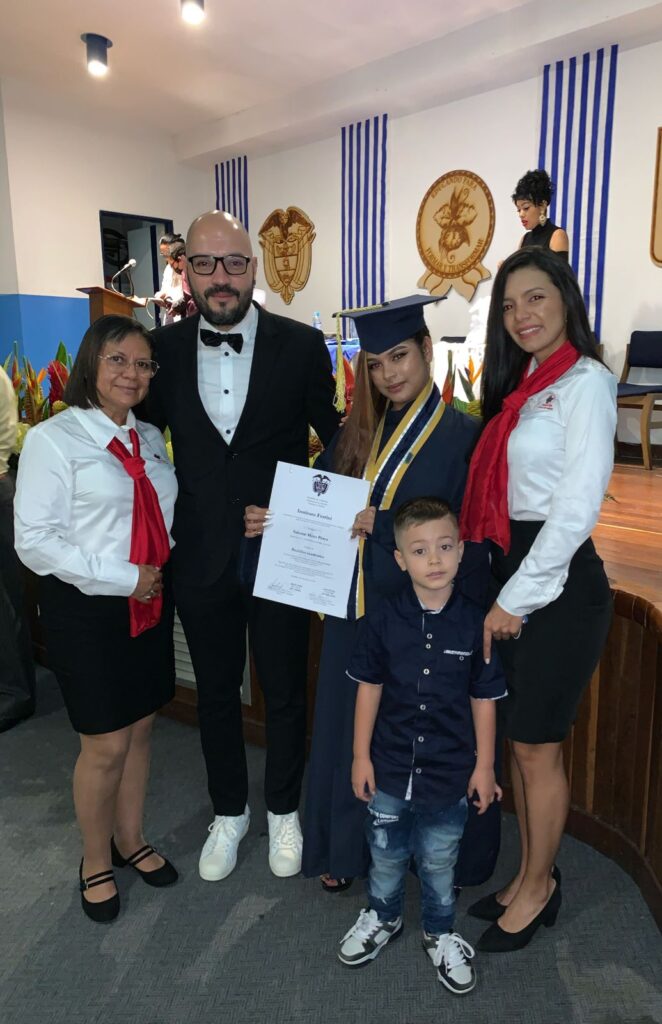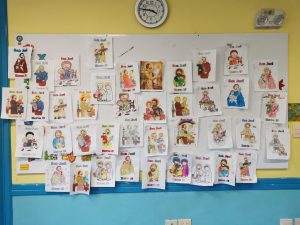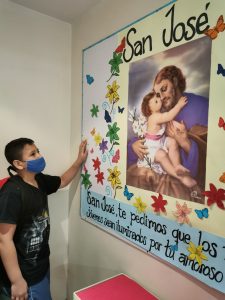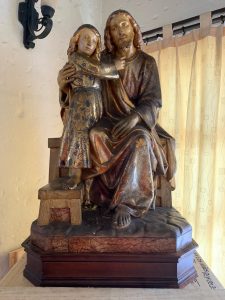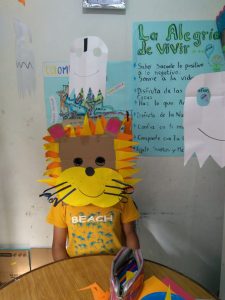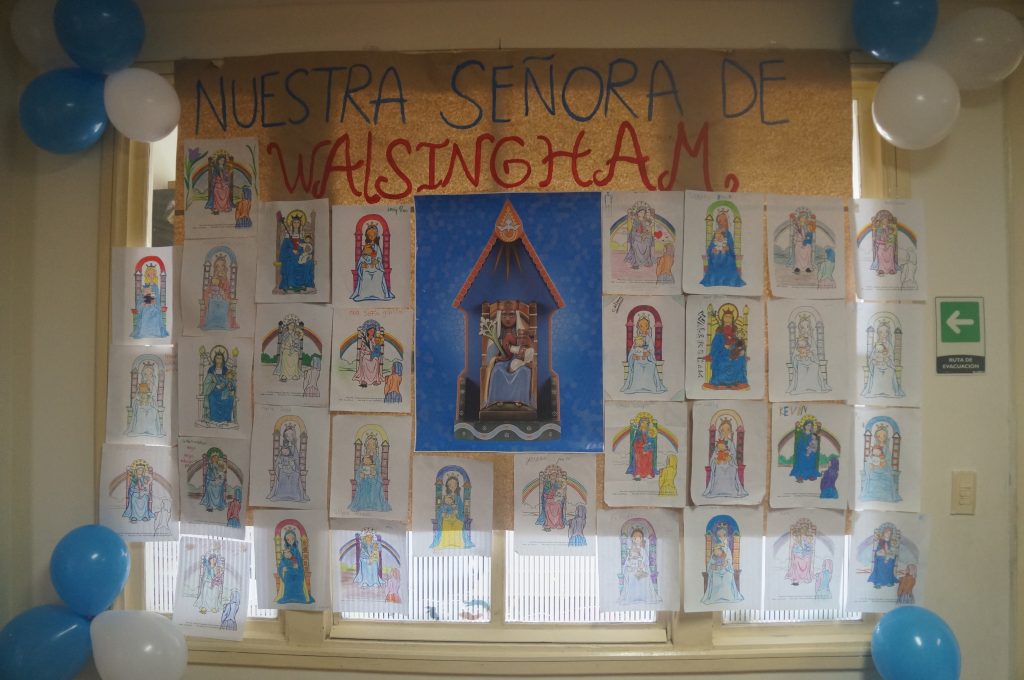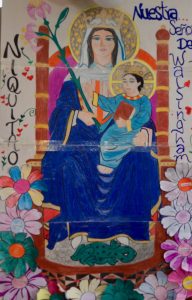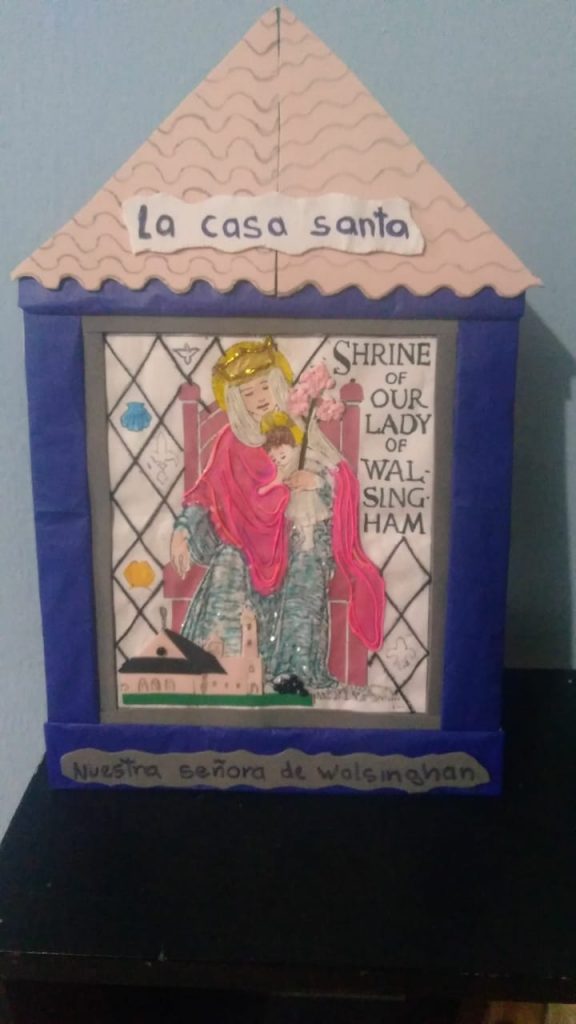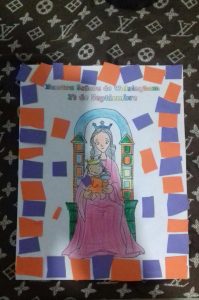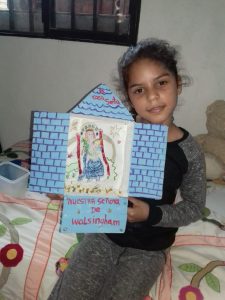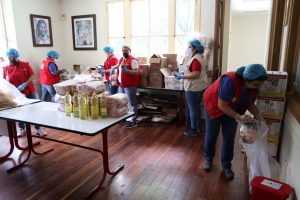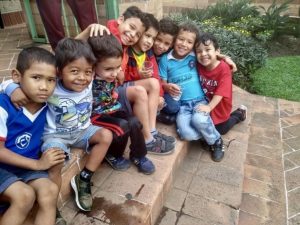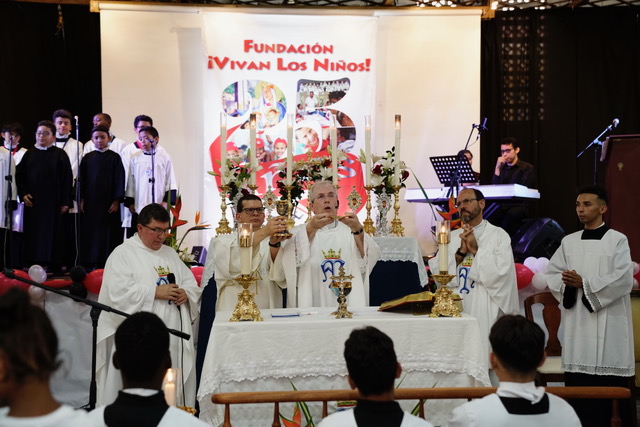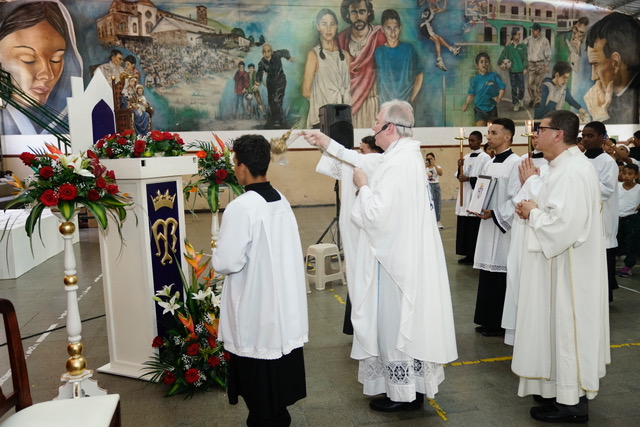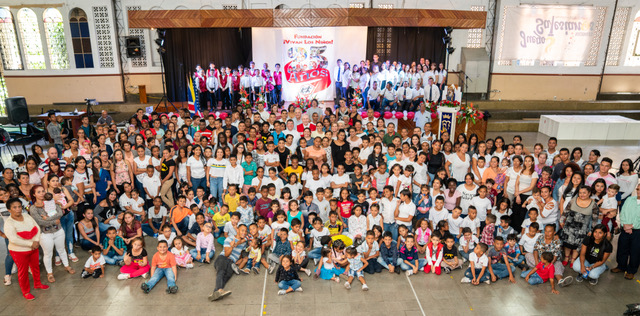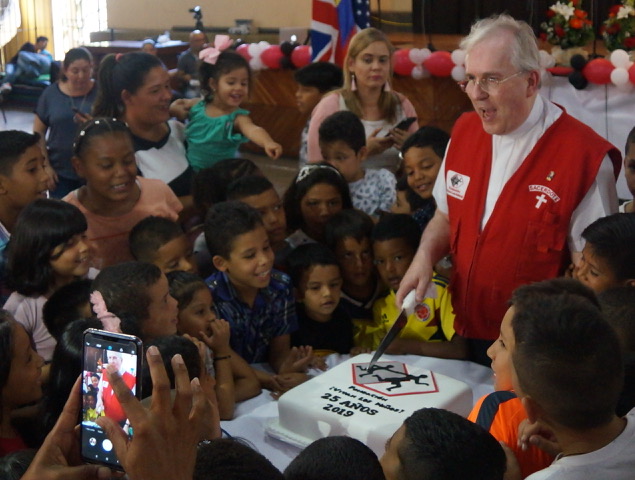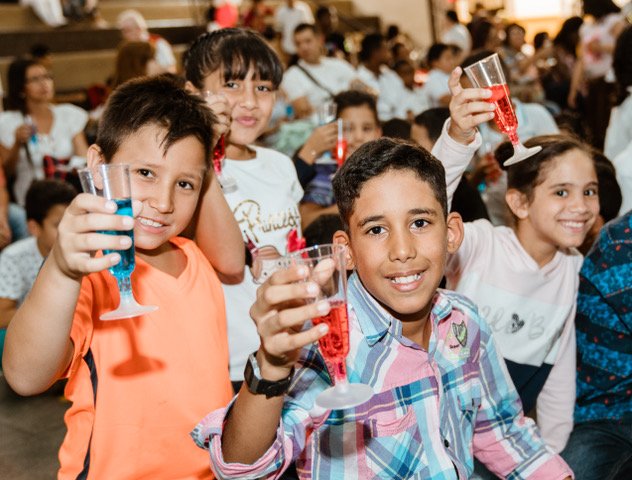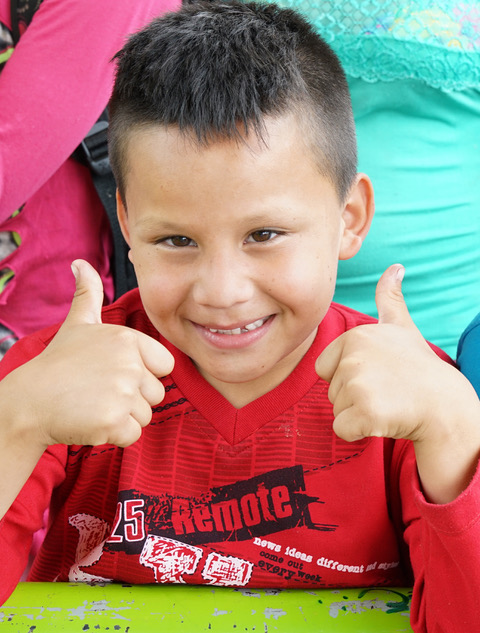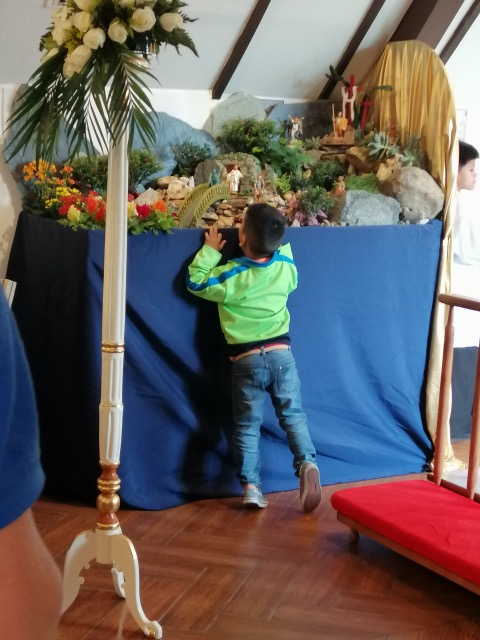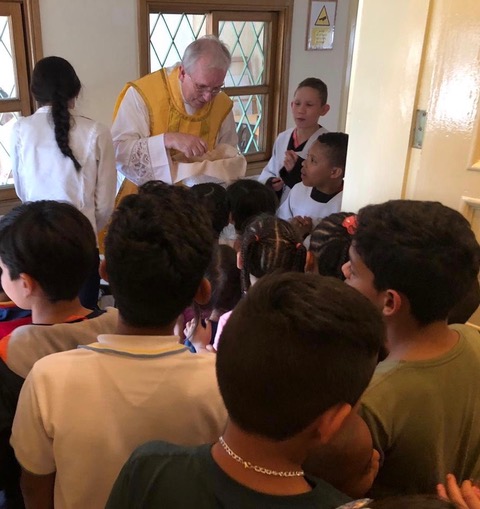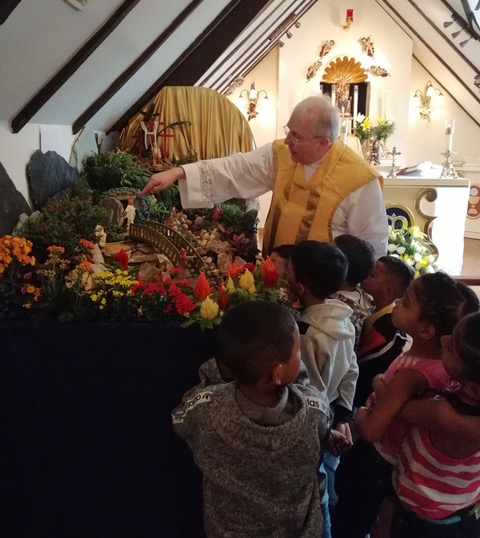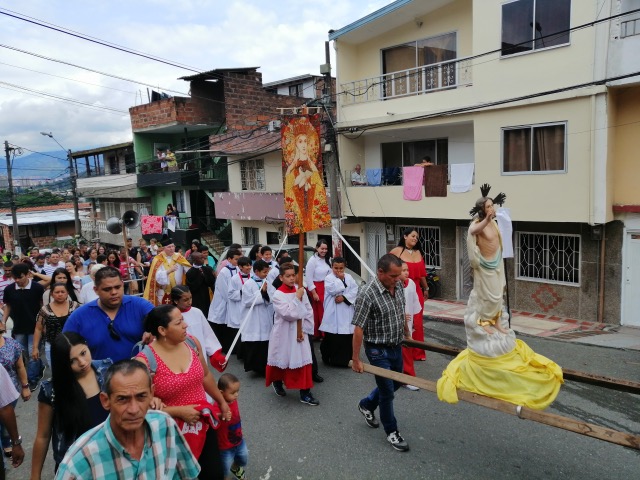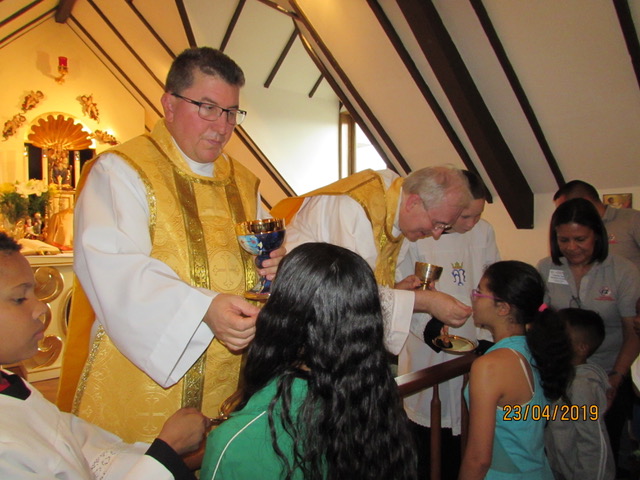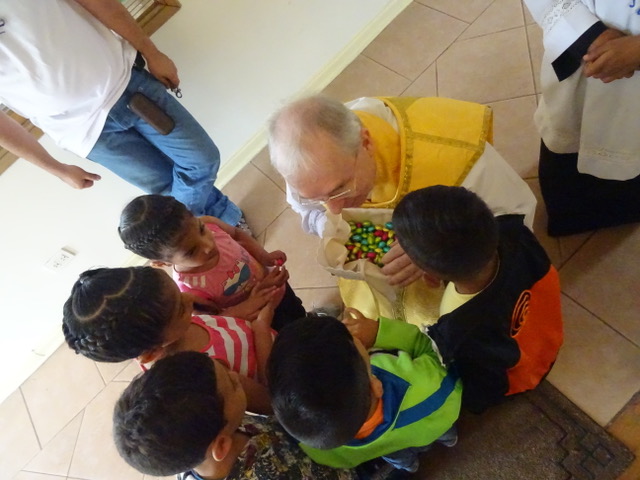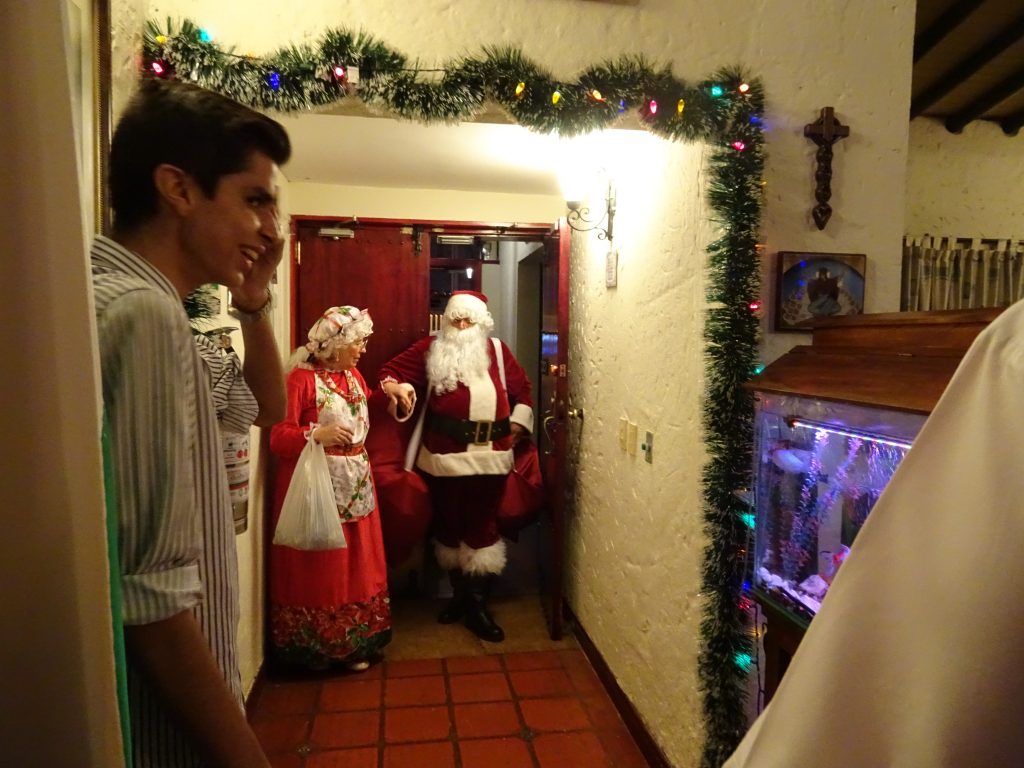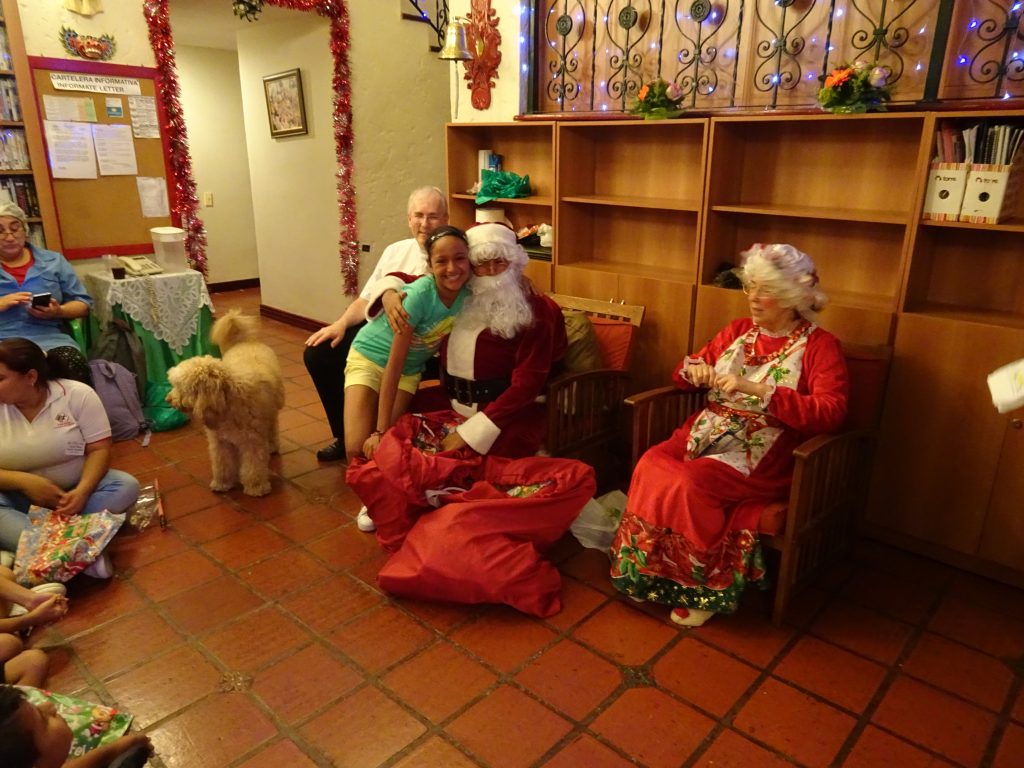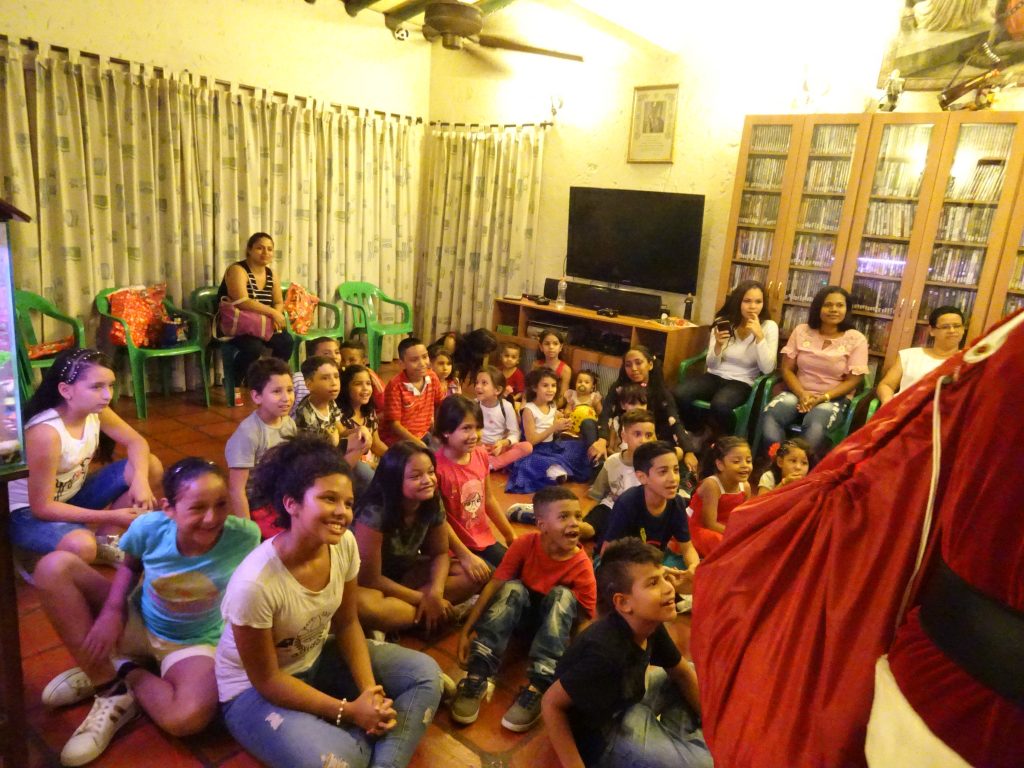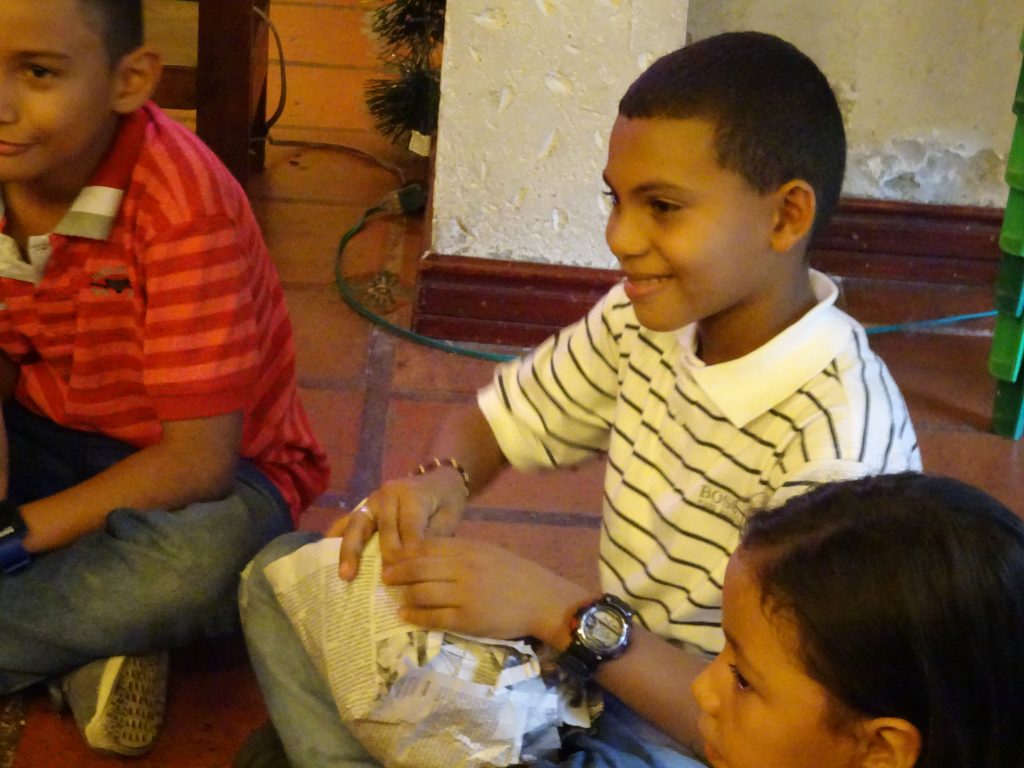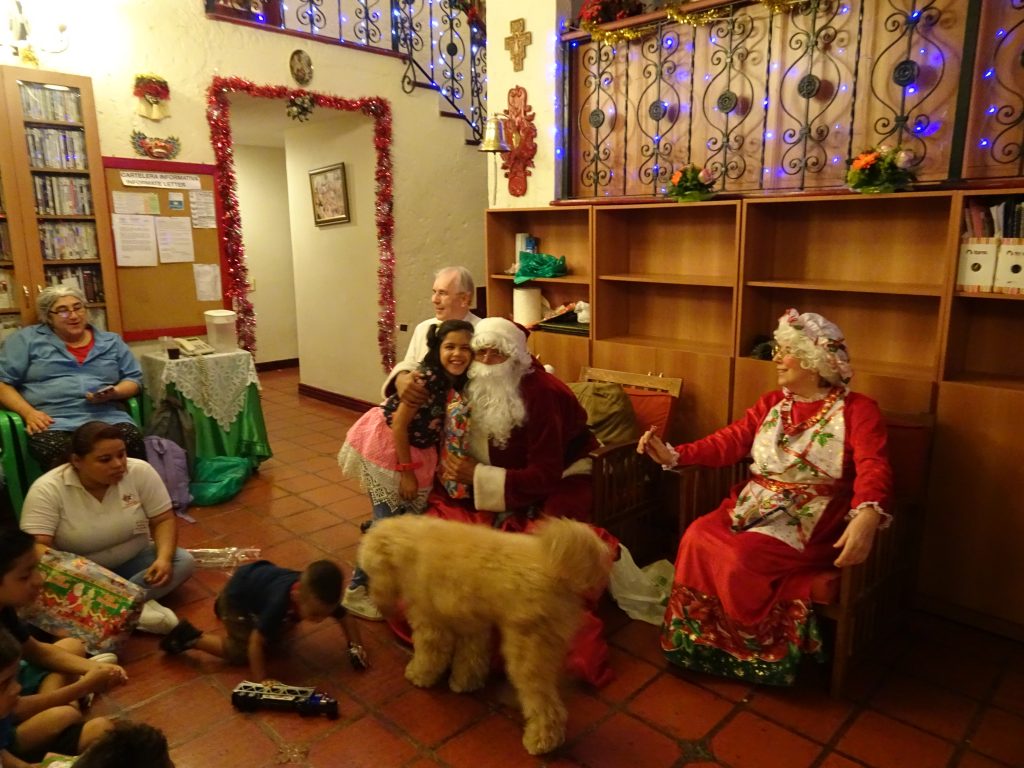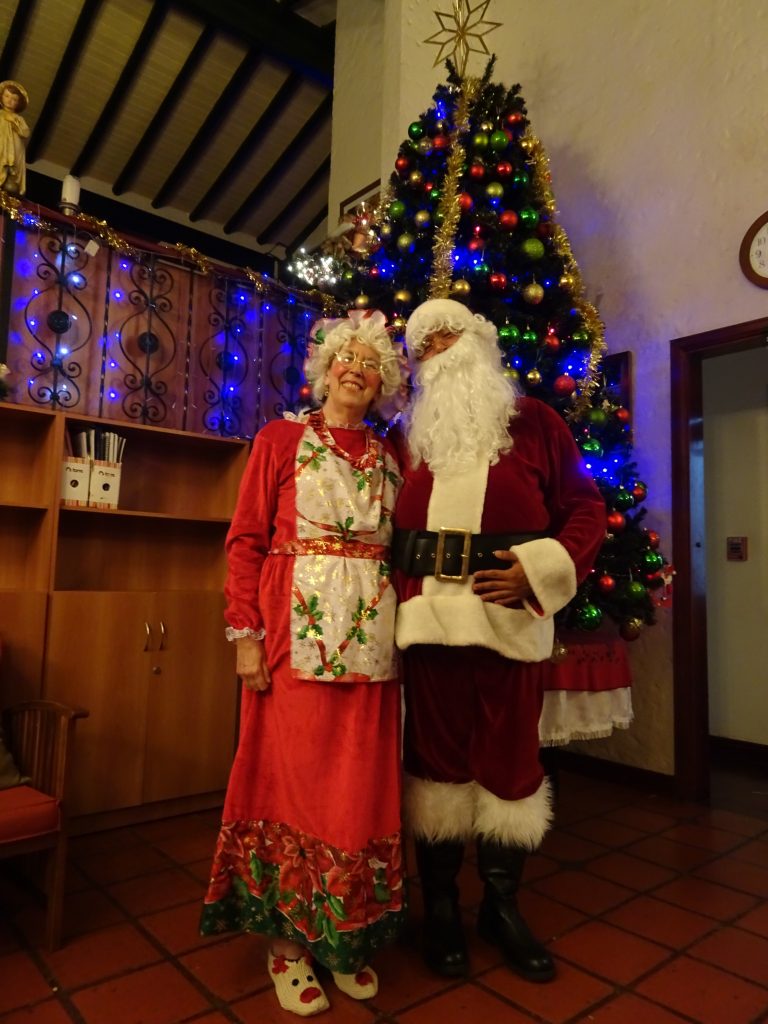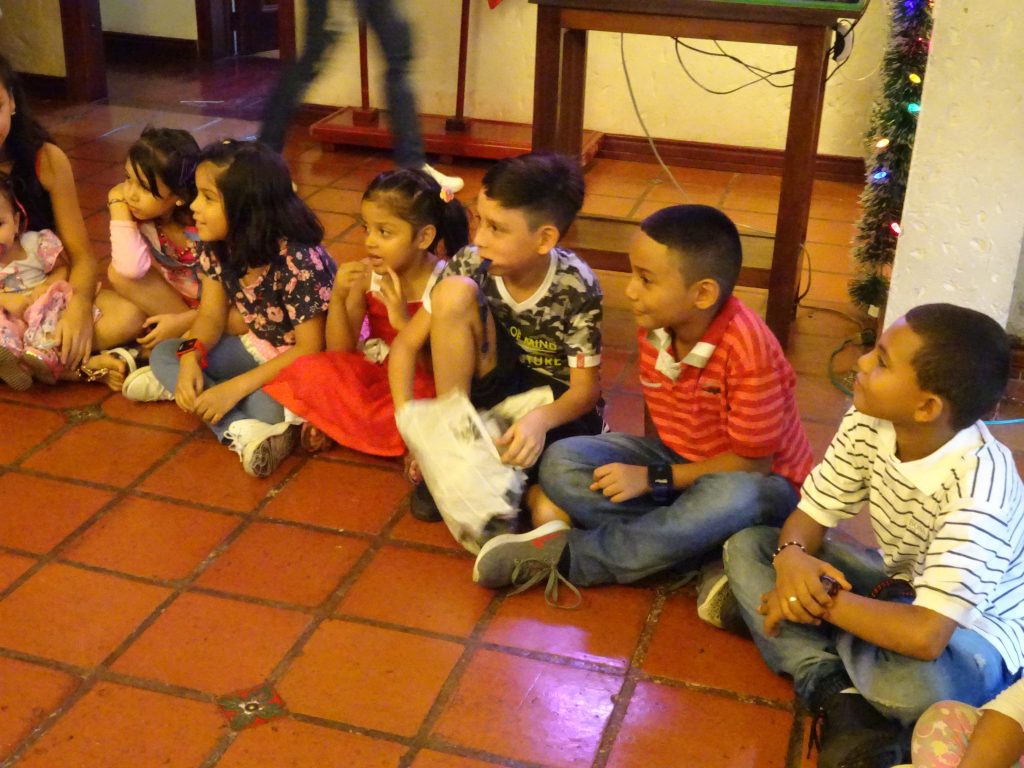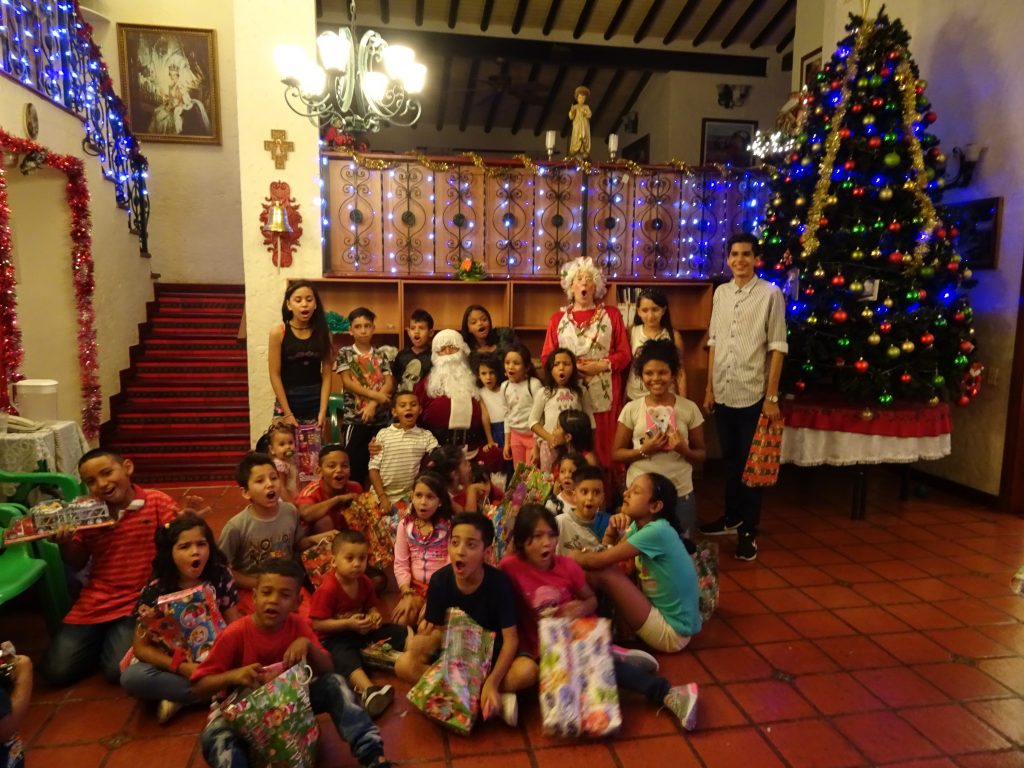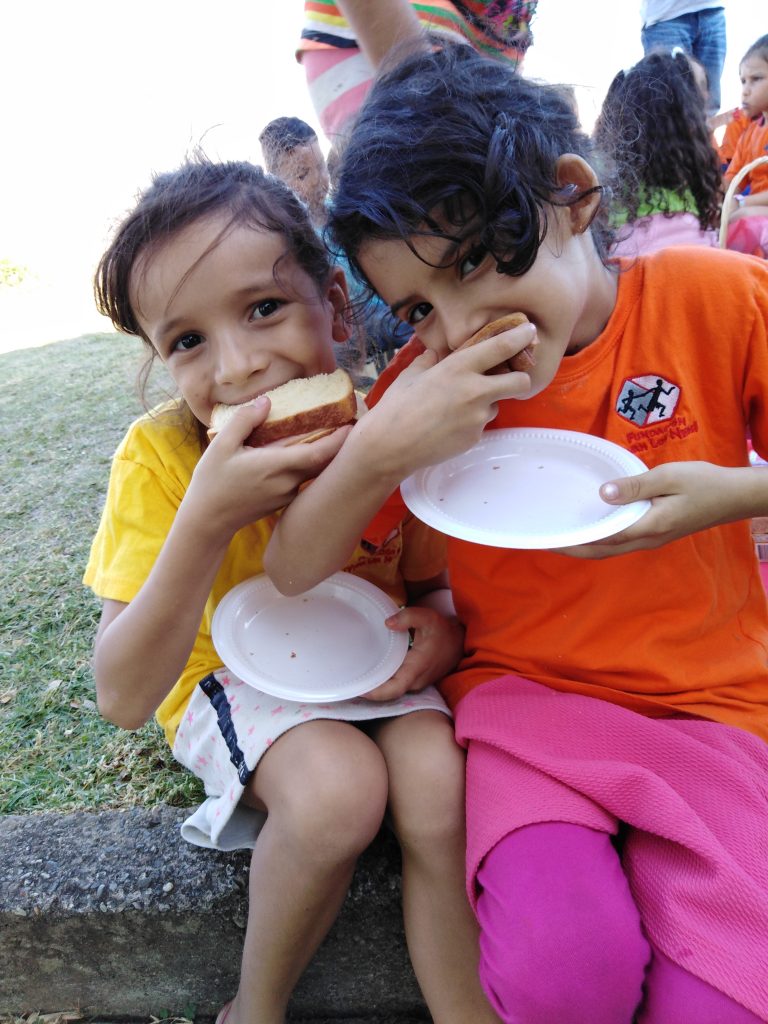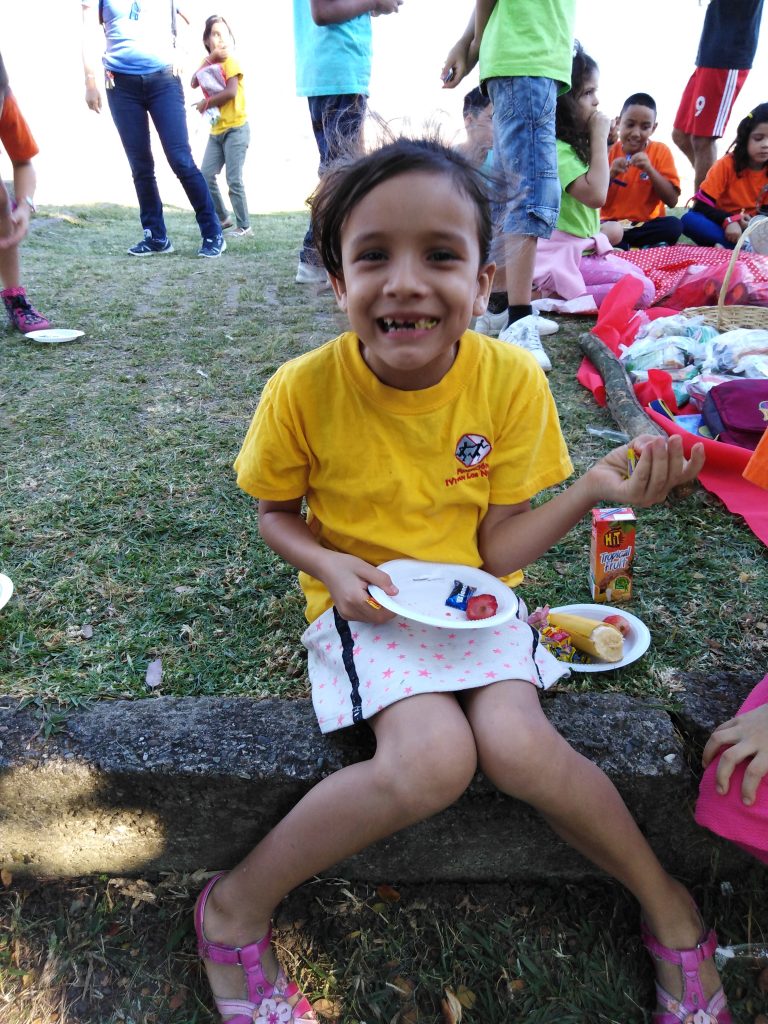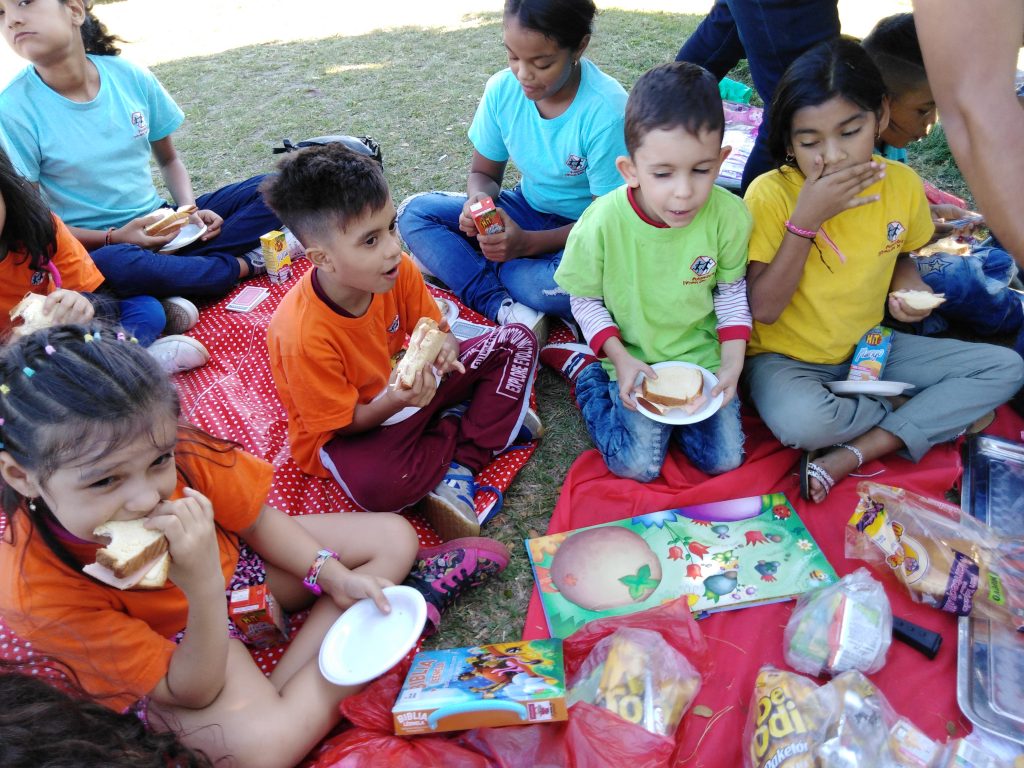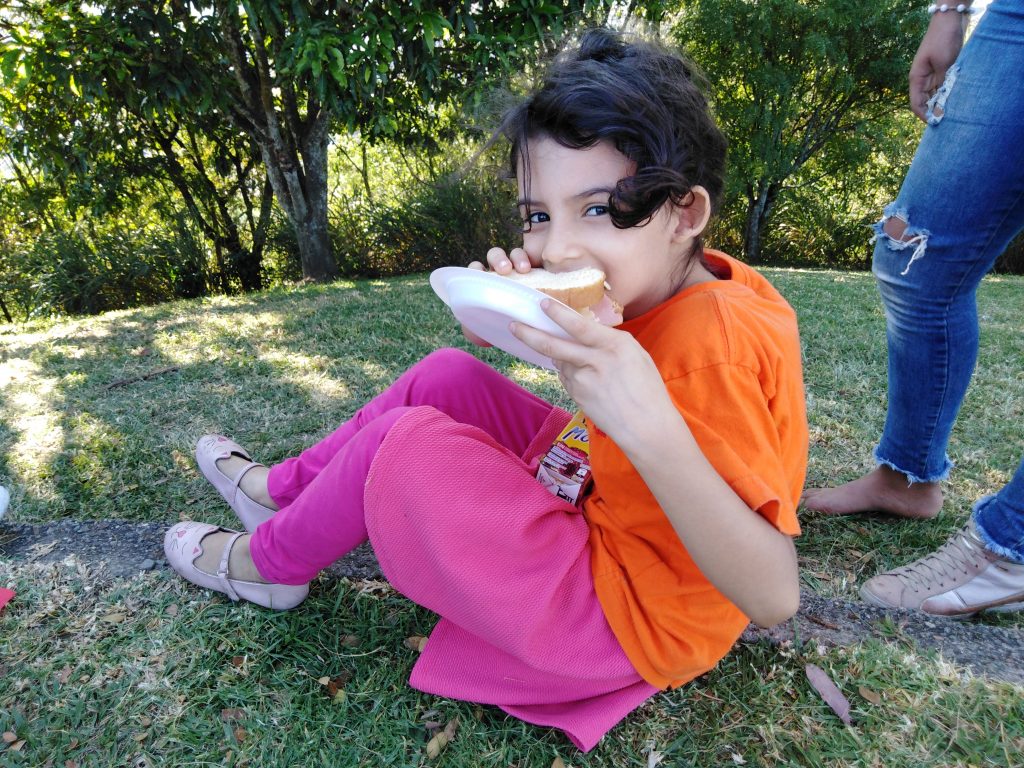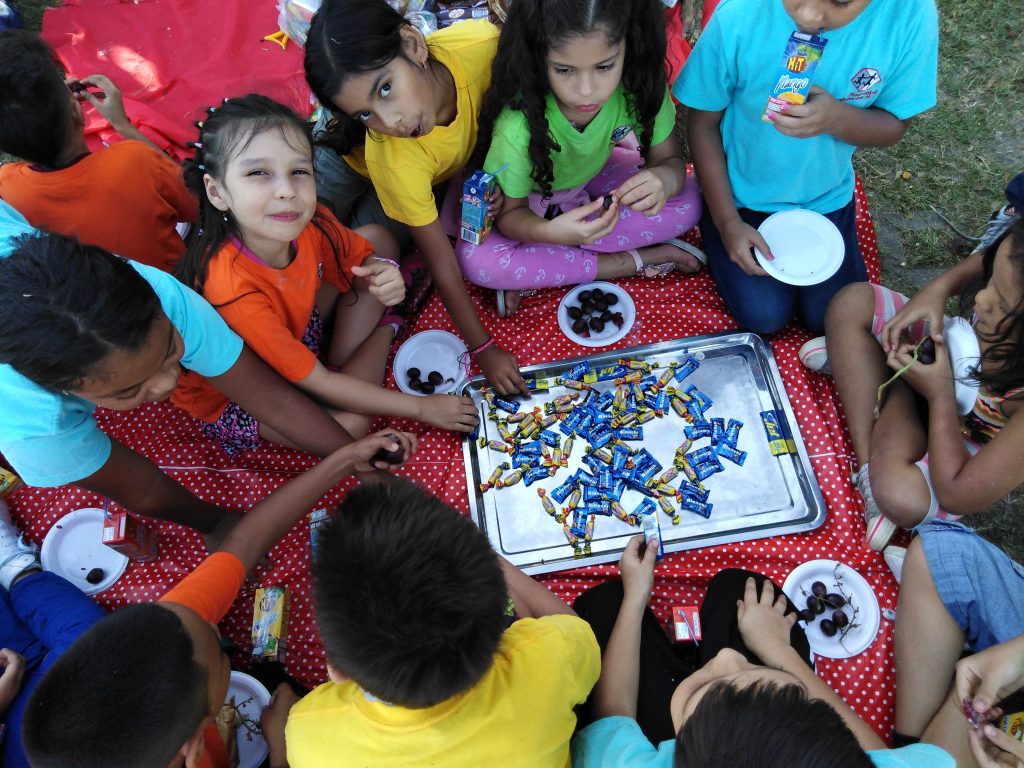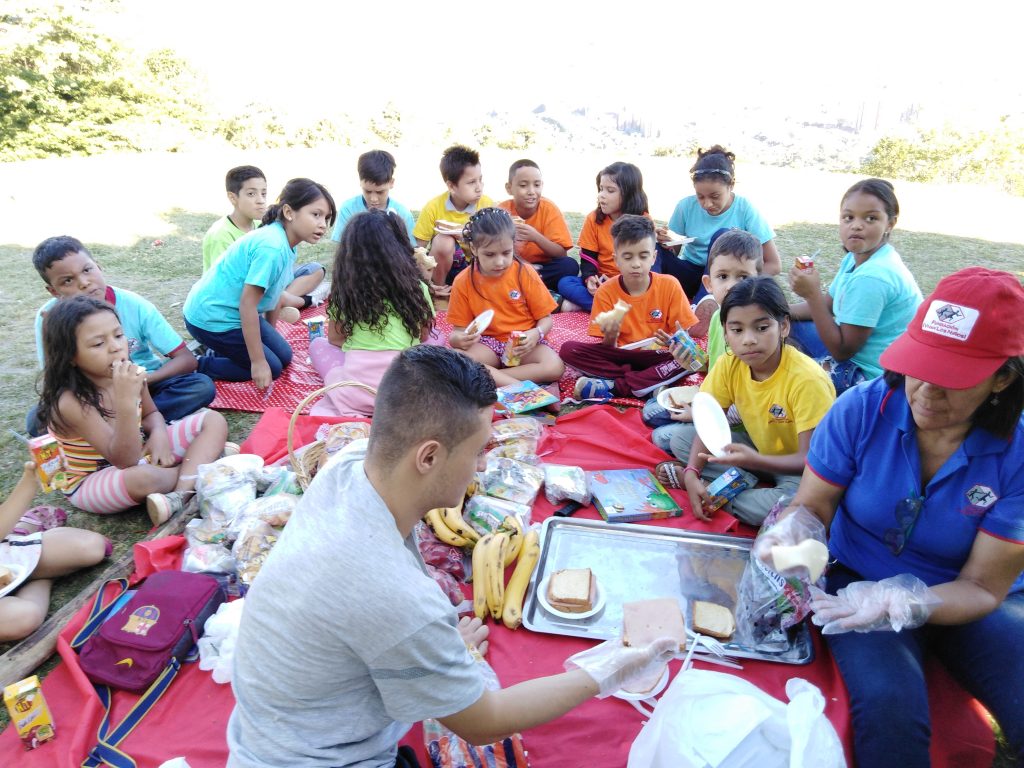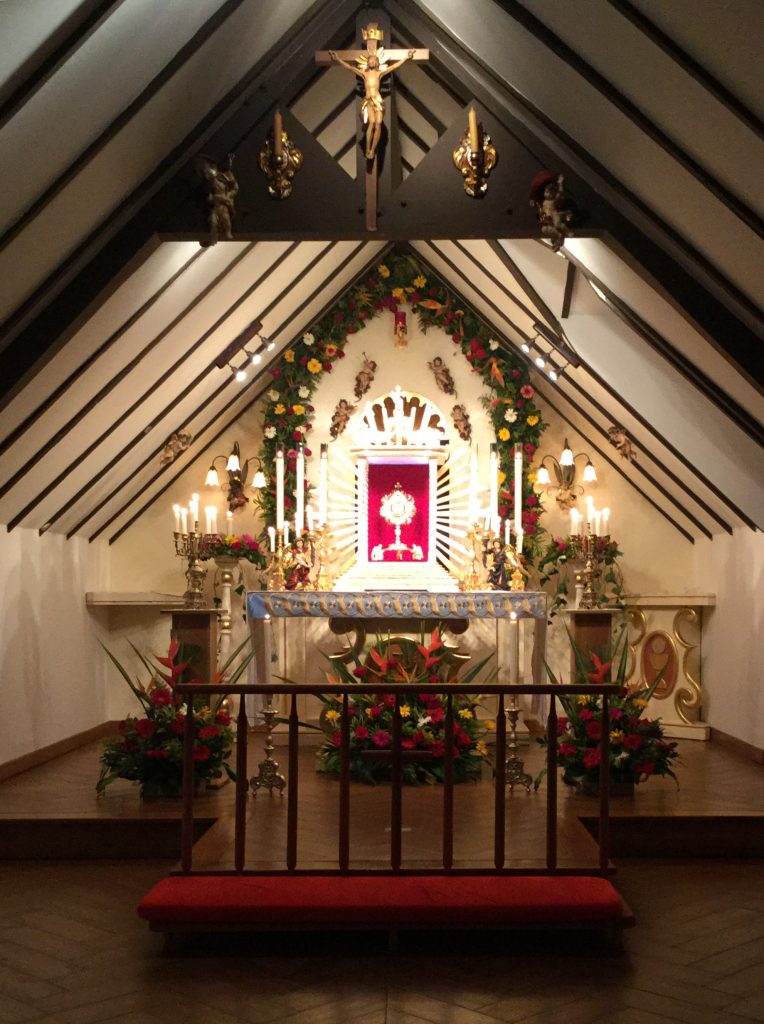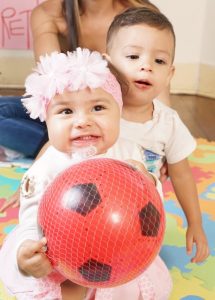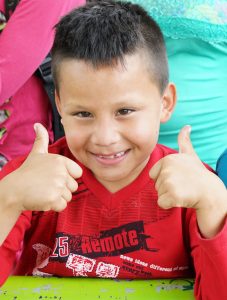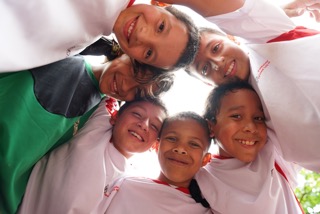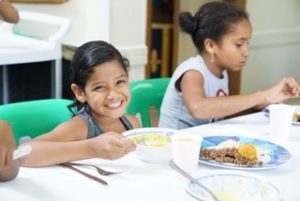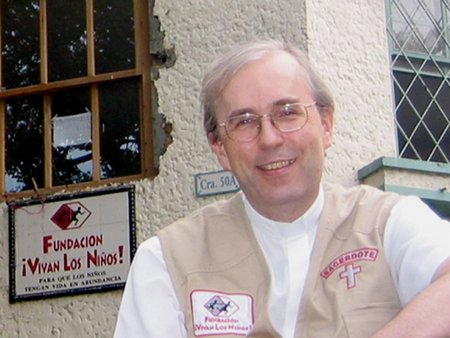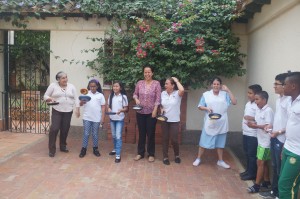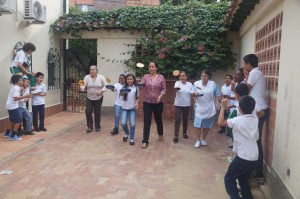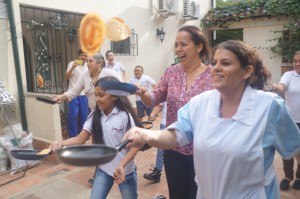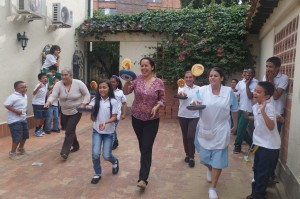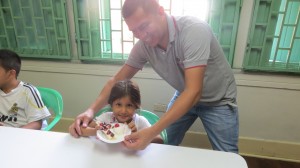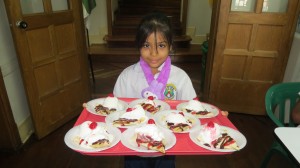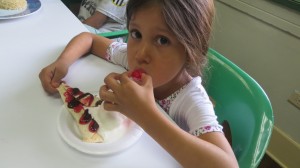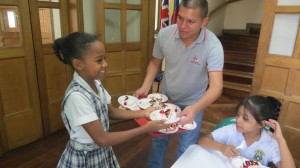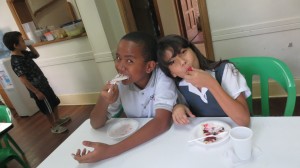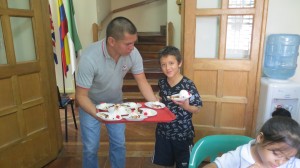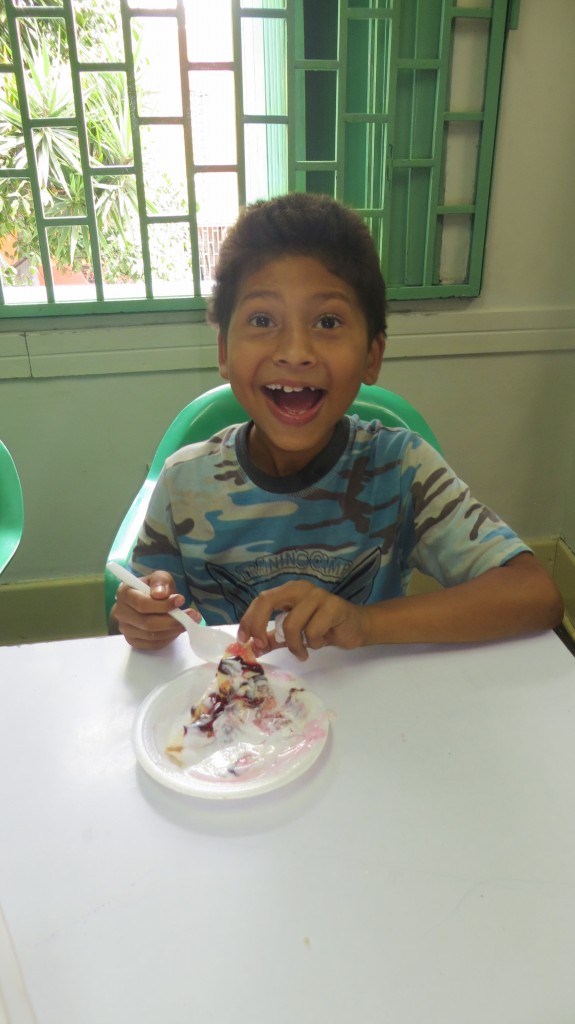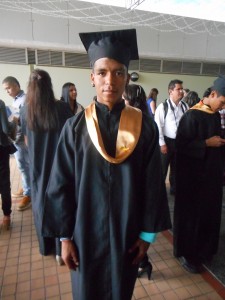A hero dog, a drug-fuelled hunt – and how four children survived 40 days in the jungleEd Cumming and Matthew Charles tell the story of the perilous search for the siblings lost in the Colombian rainforest
Wilson, the sniffer dog, finally picked up the scent on the night of June 9. The team of four indigenous rescuers were exhausted. Along with a team of crack Colombian commandos, they had been combing the jungle for six weeks. They had used every trick in the book, even taking ayahuasca as part of the ritual. But their quarry eluded them still. This is one of the most hostile environments on Earth, a land of snakes, jaguars, mosquitos, sweltering heat and 100 per cent humidity.
But the six-year old Belgian shepherd led his handlers on, through thick Amazonian rainforest, deep in impenetrable and rain-soaked undergrowth. At last, the group came to a small clearing in the jungle. There they found who they were looking for: four children from the Huitoto indigenous group: Lesly, 13, Soleiny, 9, Tien, 4, and Cristin, 1. The plane the children had been travelling in, on a flight from Araracuara Airport to San José del Guaviare, had crashed in the jungle in Caqueta province on May 1, an unthinkable 40 days earlier. And yet although the four were dehydrated, malnourished and suffering from insect bites, all four were very much alive. It was, as the rescuers shouted into their short-wave radios to transmit the news, “Miracle! Miracle! Miracle!”
Manuel Ranoque, in black
The good news brought the country to a halt. Nobody had expected the children to be alive.
The four had been with their mother, a family friend, and the pilot in a Cessna 206 light aircraft. They were flying to meet Manuel Ranoque, the father of two of the children, an indigenous mayor in the remote Amazonas region in southern Colombia. He had decided to move his family away from their home on an indigenous reserve, near a town called Araracuara, after receiving threats from local guerilla groups, who were recruiting children under the threat of violence.
For decades, Colombia has been riven by violence relating to the drugs trade. Farc (the Revolutionary Armed Forces of Colombia), the most prominent of these groups, agreed to lay down its arms in 2016, but the areas where they were most active, particularly more faraway parts of the country, remain lawless. Locals near Araracuara have been targeted by a group called the Carolina Ramirez Front, led by former Farc members.
“I was very scared the children would be recruited,” Ranoque told the New York Times earlier this week, adding that the groups “have no respect – they are capable of recruiting a child as young as two”.
What Ranoque could not have anticipated was the alternative. Early on May 1, an hour or so after they had taken off, the single engine of the Cessna failed, and the plane crashed into the undergrowth.
The family friend and the pilot are believed to have been killed instantly. The children’s mother, Magdalena Mucutuy, 33, was badly injured but it seems – although reports vary – that she was, initially, still alive. Speaking outside the hospital earlier this week, Ranoque said Lesly, his eldest daughter, had told him that her mother had urged her children to leave her behind so that they might live.
The wrecked Cessna“[Lesly’s] mother was alive for four days,” he said. “Before she died, she told them something like, ‘You guys get out of here. You guys are going to see the kind of man your dad is, and he’s going to show you the same kind of great love that I have shown you’.”
There was already a suggestion that resilience ran in the family: Ranoque said his sister had once survived for a month in the jungle. His children would need that same resilience now.
At 7.34 am local time, the pilot made a distress call reporting engine failure, and radio contact was lost shortly after. The Colombian Air Force sent out craft to search the area – a Basler BT-67 and Bell Huey helicopter. This precipitated a manhunt, initially involving 70 members of the army. A search team found the plane on May 16 in a thick patch of the rainforest and recovered the bodies of the three adults but the children were nowhere to be found.
As General Pedro Sanchez, commander of Operation Hope said, “the jungle is arduous. Trees can grow 100 feet or taller, blocking light and making it hard to see. Visibility is never more than 20 metres, so it was really hard. It is so easy to get lost and lose a trail.”
To assist in the search, President Gustavo Petro appealed to indigenous communities. Members of the Siona, Nasa, Huitoto, Sikuani, Misak, Murui and Koreguaje peoples were flown down to help.
“Some did not eat animals for 40 days as an offering to the forest,” Flavio Yepes, a member of the Sikuani community, told The Guardian. “Not even a snake until the kids appeared.”
A breakthrough reportedly came on June 8, after a ceremony in which some of the Murui took yagé, a psychoactive drug.
“Some people become anacondas during these ceremonies, some tigers, others large birds,” Yepes said. “I don’t know what animals the Murui transformed into that night but it is what brought them to circle back towards the crash site, where they found the kids.”
Wilson the dog
“If it weren’t for our ancestral understanding of the forest – its medicinal properties, its life and its spirits – we would not have found the kids when we did,” Acosta said.
Meanwhile the army used a loudspeaker to blast out recordings by the children’s grandmother, urging the children to stay put, in their native tongue. They dropped parcels of food.
Despite the seeming hopelessness of the situation, the rescuers believed the children to be alive. Throughout May, they had found clues that indicated the children had survived the crash: a half-eaten passion fruit, water bottles, nappies. A hair tie and a makeshift shelter. Footprints, too.
But then, these were not the pampered offspring of the West, but indigenous children. As Luis Acosta, the national co-ordinator of the Indigenous Guard explained, their remarkable resilience was innate. “From the age of 13 we assume adult roles,” he told reporters. “We have to, in the territory. In life, we have to do it this way.”
“My granddaughter is brave and intelligent,” Narciso Mucutuy told the Telegraph. “She knows the jungle – we, as indigenous people, know the jungle. She knew she had to get her siblings to safety.”
Led by Lesly, the children salvaged what they could from the wreckage of the aircraft: a bag of cassava flour and some canned food.
Eventually, they decided to leave the crash site, to look for more food. “They survived on berries, on fruit,” said Mucutuy. “Lesly knew what was safe to eat and what was poisonous. It’s in our blood. But we teach them this from a very young age. She rationed the milk for the little one. When the milk ran out, she replaced it with water.
“The children cried. They were cold, they were hungry and they were in shock. The eldest tore some of the fabric from the clothes of their mum. They used it to wrap themselves up… and I think to be close to her.”
Eventually, however, the children stopped trekking. “They were exhausted. The eldest was weak. She was concerned. She was losing her memory and seeing things. They just couldn’t walk any more. They thought they were going to die. They prepared to die. But thankfully, that’s when they were found.”
Lesly had her one-year-old sister in her arms. The five-year-old was huddled under a mosquito net. “I’m hungry,” said Lesly as she ran towards Nicolas Ordonez Gomes, one of the rescue workers.
“My mother is dead,” said one of the boys. The rescuers tried to change the subject, saying that their grandmother was waiting for them. The boy asked for some bread and sausage. They were tired, hungry, and had lost their mother, but they were alive.
“I felt an overwhelming peace – peace we had found them, and peace that we hadn’t failed them,” says Sanchez. “But I also felt such happiness – it consumed me. I haven’t stopped smiling since.”
The children are now in hospital in Bogotá, flown there by helicopter having been picked up by army commandos using drop-lines. They are weak, but reported to be on the mend. But the national euphoria – as if Colombia had scored a goal at the World Cup – was short-lived.
At the time, the joyful news united Left and Right in Colombia’s often a fractious political environment. The President, Gustavo Petro, said the rescue was “magical”, while Ivan Duque, the conservative who was president before him, called it a “miracle”. Even the Carolina Ramirez Front issued a statement expressing their happiness.
“Like all Colombians, we rejoice that the four surviving children of the plane crash [in] May have been found alive,” it said.
After a few days of blanket coverage of the rescue, however, the news has returned to the usual political strife. And the Mucurtys, mourning their daughter, are seeking custody of the children.
For the rescuers, meanwhile, there remains one vital missing thread. Amid the chaos of the discovery, Wilson, the dog who helped find the children, vanished into the Amazonian undergrowth. Having spent six weeks searching for the children, the rescue team must now locate their canine team member, who himself was emaciated from the weeks of pawing his way through the jungle.
“Wilson [the dog] is part of our family,” says Sanchez. “Some of my men owe him his life as a result of previous operations, we won’t turn our backs on him. We never leave a man behind so we are still looking for him.”
It seems like a lost cause. Luckily, Operation Hope, with its team of dedicated commandos and indigenous searchers, specialises in those.
Unfolding of a jungle miracle
From disaster to an extraordinary rescueMay 1
Magdalena Mucutuy and her four children board a Cessna in Araracuara for a 220-mile flight to San José del Guaviare to meet Manuel Ranoque, the father of the two youngest
The plane suffers engine failure just before 7.30am and disappears off the radar, crashing deep in the jungle. Magdalena is severely injured
May 5
Magdalena dies and Lesly, 13, and her brothers Soleiny, 9, Tien, 4, and baby Cristin set off into the jungle. The siblings survive by eating cassava flour from the plane and using their knowledge of forest fruits
May 15
Rescuers find the plane with the body of the pilot and two other adults
May 16
A massive search begins, dubbed Operación Esperanza – Operation Hope. More than 100 soldiers are deployed with sniffer dogs
May 17
Search efforts intensify after rescuers discover a shelter built with sticks, leading them to believe there are survivors
May 18
Photos released by the military show scissors, shoes and a baby’s bottle in the children’s makeshift shelter
May 26
On the day the smallest child, Cristin, turns one, the search team spends hours singing ‘Happy Birthday’ on megaphones in the jungle
June 9
A sniffer dog finds the siblings three miles from the plane. They are airlifted by helicopter to a hospital in Bogota, malnourished but well
Thanks Be To God!
Enthuse
Please note:
Pancake Race at Casa Bannatyne
On Shrove Tuesday the annual Pancake Race was held at Casa Bannatyne, with contestants taking their turn in relays due to the limited space. It looks as though they made good job of it!
Christmas Presents For Funvini
Thanks to one of our Scottish supporters doing his annual Sponsored Walk the children of Funvini were once again able to have Christmas presents this year. On Christmas Day Santa Claus visited and below you can see a picture of some of the children with their presents——-as well as Santa Claus himself! (Aka: one of our former boys.)
Jubilee celebrations at Casa Walsingham
Please go to ‘Latest News’ to see the Jubilee Celebrations at Casa Walsingham.
Refugee Registration
Salomé
Salomé is one of the young mothers from our Saint Maria Goretti Young Mothers Group. The young mothers from this group have the chance of joining our little school and gaining their High School Certificate, which gives them the chance of a future. If necessary they can take their babies to school with them, making it possible forfthem to finish their education. Salomé recently graduated from it having finished her education and gained her High School Certificate. In the picture below she is shown ( second from the right ) with her teachers and her son. Salomé has been with the Charity for the last 6 years, as has her son, Emanuel. With the Charity’s help she has succeeded in looking after Emanuel, who was born when she was just 12 years old, and in studying both at school in Casa Walsingham and at her home in one o the shanty-towns where she and Emanuel live with her father. The little family is very poor and has survived through the help and support given by Funvini. Without Funvini’s little school Salomé would have had no hope of education or of gaining her High School Certificate. She now has the chance of a future and hopes to go on to train as a professional Make-Up Artist, with the Charity’s help. This will give her the chance of permanent work and the ability to care for both her son, herself and her father. She is just one of the many girls that Funvini is helping and to whom it offers a chance of “life, life in all its fulness”.
Making a WILL? Do it with KWIL!
You can make your Will on-line or by phone with Kwil and help Let The Children Live! at the same time.
Kwil is a great way to create a Will with the benefit of legal expertise without needing to go to a solicitor’s office. The web-site has been designed to walk you through the process of creating a Will, helping you to manage the trickier aspects, including choosing an executor. And it’s free.
Click on the link below to find out more.
St Joseph’s Day
March 19th, St Joseph’s Day, and the children at Casa Walsingham and Casa Bannatyne were busy colouring in pictures of St Joseph and the Child Jesus. Together with Our Lady of Walsingham, St Joseph is one of the charity’s Patrons, so on his Feast day a statue of him with our Lord was blessed, to replace one that had stood outside Casa Walsingham until it was destroyed by vandals. See the photos below.
Respite At Casa Bannatyne
The charity offers the children with whom it works high quality care and sees no reason why this should not be so. The children we help are some of the most vulnerable in the city and for them we are a last resort. However, this doesn’t mean that the help they receive should be sub-standard. They may be poor, they may come from the streets, the shanty towns or they may be refugees but they have the same needs and aspirations as any other children and are still worthy of being given first class care.
At the present time we have 10 Venezuelan Refugee girls staying at Casa Bannatyne for a period of respite from their present living conditions. (We do have boys to stay too and a group had been with us the previous week.) The Venezuelan Refugees in Colombia are in a very difficult position at the moment. To be a refugee is bad enough but to be a refugee during a pandemic and lockdown must be almost impossible to deal with. They depend for survival on begging or working in the street but with the streets forbidden to them because of lockdown, they have no means at all of survival. The charity has been helping the families living nearby with food parcels for almost a year now but this is the first chance it has had to actually bring a group of children to stay at Casa Bannatyne. Such a break is obviously good for the children themselves but it is also a way of relieving tensions within the families, who often live in very crowded and noisy conditions.These tensions can lead to abuse, so respite breaks are important as a way of avoiding this. For the children it means they can experience normal life and enjoy the same things as other children do. This is important for their physical and mental well-being as well as their self image. They so often see themselves as worthless so activities that give them feelings of self-worth are important.
Some of the present group of girls looked rather ill-nourished so they have been seen by a nutritionist and prescribed special supplements. One of them kept being sick so a doctor was called in and she was diagnosed with parasites in her gut so now has treatment for that. The photo below shows them about to have their lunch.

We aim to provide high quality educational and leisure activities for our children so whilst the girls are staying with us they were taken out on a morning’s ecological visit by the Head Teacher from our little school, who is a very capable teacher and very good with all the children. The photos below show them on this visit, masked as required by Colombian law at the moment.

Later, in the afternoon, they had great fun at a nail-painting class. This is something they could only have dreamed of in their present circumstances so the fact that it actually happened must have been very therapeutic and have injected a good deal of joy into their lives. For children in the UK it would be just a normal, enjoyable activity these days, but for these refugee children it was a huge treat.

Making A Will? Do It With Kwil!
Kwil is an on-line Will-Making service which allows you to help Let The Children Live! at the same time.
Kwil is a great way to create a will with the benefit of legal expertise without needing to go to the hassle of visiting a solicitor’s office. The website has been designed to walk you through the process of creating a Will, helping you to manage the trickier aspects, including choosing an executor.
Click on the link below to find out more.
www.kwil.co.uk/affiliate?partner=LetTheChildrenLive
HALLOWE’EN FUNVINI STYLE
Although life in Colombia is still disrupted by Covid-19 our staff are doing their best to keep in touch with as many of our children as possible. In addition to making sure that they are fed, through the distribution of food parcels, they have tried to organise simple activities too. So to celebrate the Feast of Our Lady of Walsingham on September 24th the children living in the shanty-towns coloured in pictures of Our Lady and wrote messages of thanksgiving. Below you can see some of their offerings.
CHARITY CHECKOUT……….
has changed its name to ENTHUSE but is otherwise unchanged. Please use as normal. Thank you.
Update from Fr Peter
Fr Peter has written from Colombia with the latest news on the virus there. It is not good and Casa Bannatyne is in the worst affected area of the city—-La Pilarica, which is part of Robledo district—- so we ask your prayers.
This is his message–Nidia is our Housemother and a nurse.
“The virus situation in Colombia is deteriorating. This morning the police came round our block with a loudhailer telling us that Robledo – of which Pilarica is an offshoot – was the worst affected part of the city, and urging everyone to stay indoors. Then this evening Nidia told me that in Bogotá things are now critical, and that all the intensive care units there are now full, and that they are imposing strict lockdowns there by barrio. It looks as though the worst may yet be still to come. OLW pray for us!”
At the moment we are keeping 1,131 people alive with our food parcels.
Latest from Medellín
This is a message sent to us by Fr Peter on April 25th:
“The present phase of the lockdown is due to end on Monday 27th, but we do not yet know what restrictions are going to be eased. The Colombian government has already announced that it intends to reopen some schools in June, but that until that happens, children are not to be allowed out of doors. This will present many of our parents with a dilemma: if they go out to try to earn some money, they will have to leave the children behind alone, at risk of accidents, fire, and abuse by their neighbours; but if they stay inside with their children, they won’t have money for food, rent, light or gas. The Venezuelan refugees and Colombian street-workers live in one-room tenements, and although the landlords are not meant to evict them if they can’t pay the rent, they get round this by turning off the light, water and gas.
The family of the two little Venezuelan refugee boys we have staying with us at Casa Bannatyne are a typical case. They are from a middle-class background, so destitution has hit them even harder than families who have always been very poor. The husband has managed to get himself a job in Peru, and he hopes that his wife and three children will eventually be able to join him there, provided his job survives. The mother asked us to take her two boys in at the beginning of the lockdown, leaving her in a rented room with her youngest child, who is a girl. The conditions there are pretty dreadful, and there has been an outbreak of bedbugs and fleas in the building; but at least she knows that her boys are OK, and she and her daughter have a little more space than if they were all crammed in together. However, she has sometimes had to barricade her door, because when one of her neighbours gets drunk, he has tried to break in to rape her, knowing that she does not have anyone to protect her. Because she is not earning, she is behind with the rent, and the landlord is likely to seize their few possessions, and change the lock on the door if she goes out to work, which would leave them out in the street with nothing more than what they stand up in. We would love to be able to help to rehouse them, but many tenement landlords are now reluctant to rent to families with children at all.
So far, we have distributed273 food-parcels in 6 distributions.These are benefitting 174 families, comprising 343 children and 480 adults, making a total of 823 people whom the benefactors of Let The Children Live!are helping to keep alive.”
Food Parcels
COVID-19
Due to the present crisis we have had to temporarily close our shop in Walsingham and our Office in Doncaster. However, we are very much “open” in the sense that we still have children in Medellín who depend on us and whom we are trying to support as far as is possible under the difficult circumstances that exist in Colombia right now. We are, for example, making up food parcels for the children who will not be able to come to Casa Walsingham for lunch for the next 3 weeks of lockdown in Medellín, so that they do not go hungry.
It seems highly likely that the eight weeks of fund-raising planned for Fr Peter during May and June will have to be cancelled. This is bound to have a severe effect on the charity’s finances and so we ask your prayers, for Fr Peter, for our staff and for our children. Please know that they will be praying for you, our supporters, too.
Donations can still be made in the usual ways and the Administrator can still be contacted on 01302 858369.
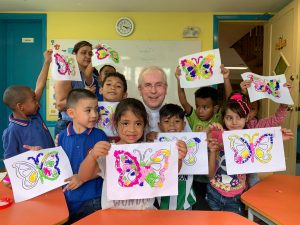
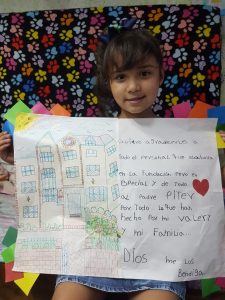
George McAleenan’s 21st Sponsored Walk has set a record by raising £26,250—the most it has ever raised! George began his Walks in 1999 and has undertaken them every year since then. This year he had company in the form of Aileen McNally, a good supporter of the charity. The money will pay for Christmas parties, presents and treats for all our Colombian children as well as for the Venezuelan refugee children whom we are helping.
Thank You George!
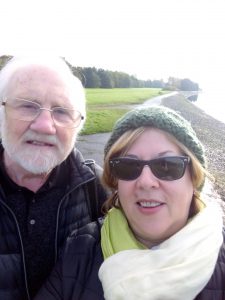
(And Aileen!)
As usual, Fr Peter will be visiting the UK to fundraise in 2020. The mainstay of these tours is preaching and making Appeals in parishes, particularly larger ones where congregations are substantial. Some of his weekends in 2020 are already filled but 8 are still empty and we would like to fill these as soon as possible, especially the one in February. Would you speak to your parish priest and ask if Fr Peter could visit your parish? We can supply literature to help you with this and there is, of course, the website.
The vacant weekends are:
BARBECUE
On Monday 17th July Maria Greig, assisted by her husband Neil, organised another one of her annual Barbecues to raise much needed funds for our charity.She was very fortunate that it was a lovely warm day and extremely hot in the corner of their garden where Neil was cooking lots of burgers and sausages.Their entire garden and house was taken over by the BBQ as just over 90 people turned up to enjoy the day and to eat their burgers and hot dogs at the tables that were laid out in the garden.
Besides the barbecue there was Tombola within the house.The event lasted most of the day and evening and the last of the guests left about 10.30pm.A total of £1200 was raised for LET THE CHILDREN LIVE! This was about half of the overall total and the other half of the takings was shared with another charity.
Maria has been organising these BBQs for several years now and she has raised almost £5000.What made her decide to support Let The Children Live! in such a big way was hearing Father Peter speak at one of his Parish Appeals in the parish of St Aloysius, Chapelhall in the diocese of Motherwell.She was so impressed with Father Peter and the work he was doing among the street children in Medellin, Colombia that she wanted to do something more than just putting her donation in the plate at the end of Mass. Quite often we do not know what others are doing for the charity after hearing Father Peter appealing to them. So a big thanks to Maria and Neil for their continued support for our work which is making a big difference to the lives of many children.
(Reported by George McAleenan who was at the barbecue)
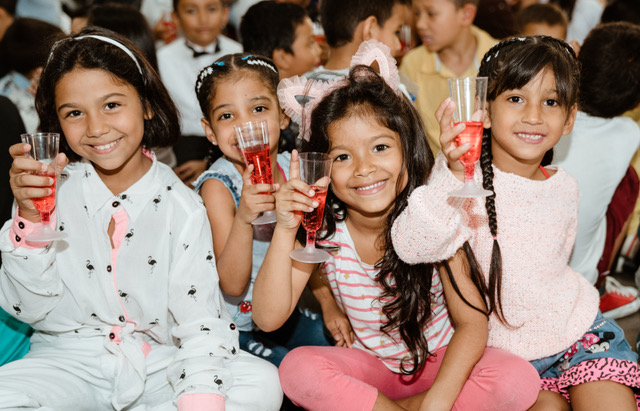 Last week Funvini—–Let The Children Live!’s Colombian daughter charity in Medellín—-celebrated its Silver Jubilee. The main event was a Mass, followed by cake and fizzy drinks. The photographs tell the story.
Last week Funvini—–Let The Children Live!’s Colombian daughter charity in Medellín—-celebrated its Silver Jubilee. The main event was a Mass, followed by cake and fizzy drinks. The photographs tell the story.
Young Mum’s Graduate From Funvini’s School
Christmas Party at Casa Bannatyne
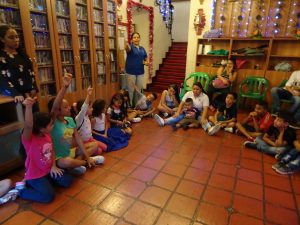
On Christmas Day, in the afternoon, some of our most vulnerable and needy children came to Casa Bannatyne for a Christmas Party. 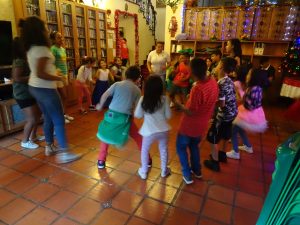 The group included some of our Colombian children as well as some of the Venezuelan Refugee children whom we are helping.
The group included some of our Colombian children as well as some of the Venezuelan Refugee children whom we are helping. 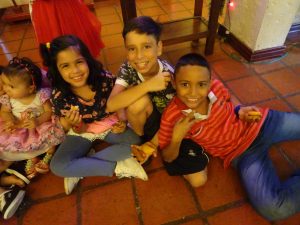 The four-hour party included games, dancing, prizes, food…..and concluded with a visit from Papa and Mama Noel, who brought presents for all.
The four-hour party included games, dancing, prizes, food…..and concluded with a visit from Papa and Mama Noel, who brought presents for all.
The children had a great time and all joined in saying the Angelus before they left, thanking the One in whose honour the party had been held.
MORE PHOTOS BELOW
It may have been ‘the Feast of Stephen’ but the snow did not ‘lay round about, deep and crisp and even’ because here in Medellín the sun was shining and the day was warm. Our Venezuelan Refugee Children were out on a picnic with several of our staff when the photos below were taken. They are all refugees from the violence and economic collapse that has been ravaging Venezuela for some time. There are at least 1,000,000 refugees in Colombia and approximately 60,000 of those are in Medellín, where we work. We are in contact with 83 families who are living in the area around Casa Walsingham. Within the 83 families are 172 children and Funvini is helping the most vulnerable on a daily basis.
Pictures from the Picnic
The Forty Hours Devotion at Casa Walsingham
For the third year in succession Funvini has observed the Forty Hours Devotion at Casa Walsingham. A succession of children and staff keep an unbroken chain of prayer before the Blessed Sacrament in the chapel, day and night. To enable the children to take part in this the staff organise sleep-overs, for girls one night and boys the next, and throughout each night little groups of children can be found praying in the chapel for 15 or 20 minutes at a time. In between they are meant to sleep, but they find it far too exciting for that!
GDPR Consent Forms
Thank you to all those who have returned their signed Consent Forms to us. If you have not yet done so, but intend to, there is still time.
Thank you too to all those who have responded to our Appeal for financial help by making a donation to the charity, or by setting up a Standing Order, or by increasing one that they already have, and for all who have gift-aided their contributions. We realise that there are many sacrifices behind this giving and we are most grateful for your support and send our warmest good wishes to you.
General Data Protection Regulations (GDPR)
In order to comply with the new Data Protection Regulations that come into effect on May 25th, we are currently sending out our GDPR packs. These contain a covering letter from Fr Peter, a copy of our Privacy Policy and a Consent Form. If you have not received one but would like one please ring us on 01302 858369. Our Privacy Policy can be viewed below.
Privacy and Data Protection Statement
1. Your personal data—what is it?
Personal data relates to a living individual who can be identified from the data. Identification can be by the information alone or in conjunction with any other information in the data controller’s possession or likely to come into such possession. The processing of personal data is governed by the General Data Protection Regulation (GDPR).
2. Who are we?
The registered charity Let The Children Live! (“the charity”) is the data controller (contact details above). This means it decides how your personal data is processed and for what purposes.
3. How do we process your personal data? The charity complies with its obligations under the GDPR by keeping personal data up to date; by storing or destroying it securely; by not collecting or retaining unnecessary amounts of data; by protecting personal data from loss, misuse, unauthorised access and disclosure; and by ensuring that appropria technical measures are in place to protect personal data. We use your personal data for the following purposes:
• To enable us to continue to provide help for needy children and young people in Colombia and to promote the other objects for which the charity exists;
• To administer our supporters’ records;
• To fundraise and promote the work of the charity;
• To manage our Trustees, employees and volunteers;
To maintain our own accounts and records, including the processing of donations made under the Gift Aid scheme;
• To inform our supporters of news, events, activities and services connected to the charity. However, we do not employ the practice of “cold—calling” private individuals, and we rarely send them literature unless specifically asked to do so; and
• To respond to our supporters’ queries and requests.
4. What is the legal basis for processing your personal data?
• Your explicit consent as the data subject so that we can keep you informed about news, events, activities and services and process your gift aid donations.
• Processing is necessary for carrying out obligations under employment, social security or social protection law, or a collective agreement.
• Processing is carried out by the charity for the purposes for which it exists, and relates only to supporters or former supporters, or those who have regular contact with it in connection with those purposes; and without any voluntary disclosures to third parties without the consent of the people concerned.
5. Sharing your personal data
Your personal data will continue to be treated as strictly confidential and will not be shared with third parties without your consent, except as may be required by law.
6. Security
Your personal data is kept either in locked filing cabinets or on computers which are protected by security software and by passwords. Only staff who have been with the charity for at least a year have access to the filing cabinet keys and computer passwords.
7. How long do we keep your personal data?
We are legally obliged to keep information for at least 6 years but may retain it for longer if it is needed to administer our accounts; to claim Gift Aid; to fulfil our legal obligations and send news to our supporters and respond to their requests.
8. Your rights and your personal data
Unless subject to an exemption under the GDPR, your rights with respect to your personal data include:
• The right to request a copy of your personal data which the charity holds about you;
• The right to request that the charity corrects any personal data if it is found to be inaccurate or out of date; and
• The right to request your personal data is erased where it is no longer legally necessary for the charity to retain such data.
9. Further processing
If we wish to use your personal data for a new purpose, not covered by this Data Protection Notice, then we will provide you with a new notice explaining this new use prior to commencing the processing and setting out the relevant purposes and processing conditions. Where and whenever necessary, we will seek your prior consent to the new processing.
10. Contact Details
To exercise all relevant rights or to resolve any queries please write to the Administrator at the address above.
RADIO INTERVIEW WITH FR PETER AND JUAN PABLO
In December 2017 Fr Peter was invited to take a quartet from Funvini’s choir, Cor Videns, to sing at the Cathedral of Our Lady of Walsingham in Houston, Texas. Whilst there he was interviewed for the Guadalupe Radio Network by a member of the congregation and you can listen to the Interview on the link below.
Parishes wanted for Appeals, please!
We are looking for parishes where either Fr Peter, or Pauline Allan the Administrator, can make Appeals. If you can help please ring 01302 858369. Fr Peter’s weekends are now all filled for 2019, but we will soon be booking for 2020. Miss Allan has a more flexible schedule.
We also need schools where we can talk and publicise our work. Could you contact your local schools and ask them to invite us in? Or your local Rotary Club?
Have you changed over yet?
For some time now we have been advising our supporters who give by Standing Order or Direct Debit that as from January 2017 the charity’s Bank Account details would be changing and that they would therefore need to give our new details to their banks. Whilst most supporters have done this, there are still a few who have not and for some of these supporters we have no contact details as they set up their Standing Orders and Direct Debits themselves. So, this is the only way we have of trying to reach them. If you still have payments going into our old account please contact your bank and give them our new account details as soon as possible.
New Account Details
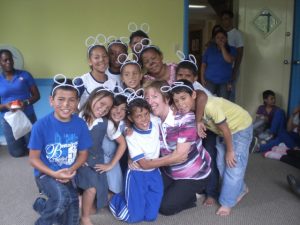
Barclays Bank-Worcester Branch
Account name: Let The Children Live!
Account No: 13514919
Sort Code: 209861
Many thanks for your support.
Become our PUBLICITY AGENTS!
Tell others about our work
We need:
Invitations from parishes and schools to talk about our work and make Appeals during 2020. Can you help us? Will you talk to your Parish Priest and/or your RE Teacher at school? Ring 01302 858369 if you can help. You will be playing an important part in our work if you can help us like this.
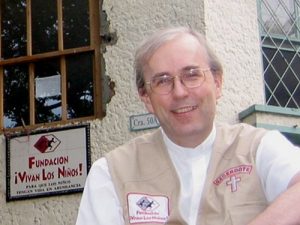 NB. Fr Peter will have copies of our choir’s second CD, Pasabocas, with him, or you can buy one by ringing us on 01302 858369.
NB. Fr Peter will have copies of our choir’s second CD, Pasabocas, with him, or you can buy one by ringing us on 01302 858369. 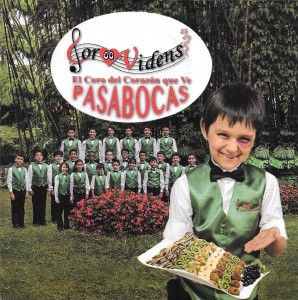 They cost £7.50 each, or £7.50 plus P&P £2.00, by mail order within the UK.
They cost £7.50 each, or £7.50 plus P&P £2.00, by mail order within the UK.
The Forty Hours Devotion
27th August, 2016
Between Friday August 26th and Sunday 28th the children and staff of Funvini are celebrating the Forty Hours Devotion in the chapel at Casa Walsingham. The Intention is to ask for God’s blessing on our School Project and all our children will have the opportunity to spend some time in the chapel. A group of 50 girls are having a ‘sleepover’ at Casa Walsingham on the Friday night—-a great favourite with them! In small groups they will spend two 15 minute periods keeping watch before the Blessed Sacrament, accompanied by one of our staff. On Saturday night, 50 boys will be doing the same thing. Throughout Saturday children will come to Casa Walsingham to take part in the devotion and to enjoy the activities that will be provided for them.The devotion will end with Mass at 8am on Sunday morning followed by a Procession through the streets, during which the canopy over the Blessed Sacrament will be carried by four of our boys from the street.
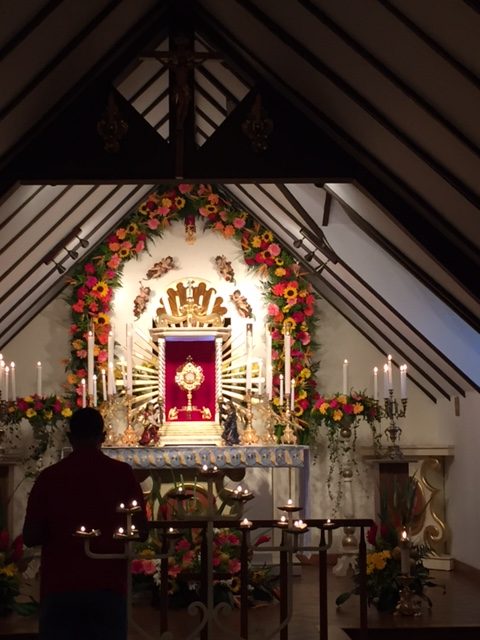
Posted in Updates
Comments are closed.
Copyright © 2010 Let The Children Live. All Rights Reserved.
Designed by White Dog Green Frog.
Wanted!
RC Parishes where Fr Peter can make Appeals
Parishes and schools where he can make Presentations during the week.
Ring 01302 858369 if you can help.
Pancake Race at Casa Bannatyne!
Having heard all about the British custom of holding pancake races on Shrove Tuesday (the day before the start of Lent) from Fr Peter, our staff at Casa Bannatyne decided to hold their own races and what fun they had! Together with some of our children, they ran and tossed their pancakes with great hilarity, as witnessed by the photos below. Talk about wishing you were there! And the pancakes didn’t go to waste because afterwards, our children ate them as a pre-Lenten treat! Now I really do wish I was there!
A New CD, Pasabocas, is now available at £8.00, plus P&P £2.00 in UK. Ring 01302 858369 to order a copy or to get information about other postage prices. Click on the link below to listen to an extract.
The Musical Extravaganza on May 14th was splendid and raised £1,580!
~~~~~~~
Brief Update
Funvini ( the charity’s name in Colombia ) is currently helping about 530 children through its various programmes. This population includes children who live in the street; children who do various kinds of work – begging, selling sweets, cleaning car windscreens, juggling, prostitution, etc. – in the street; children who are at social risk of abuse or of becoming street-children; children with learning and/or behaviour problems; adolescent mothers and their babies; and the children of Cor Videns, Funvini’s choir.
However, the situation in Medellín is changing, and Funvini must adapt to meet the changing needs of its children. Although the murder rate in the city has dropped dramatically, the crime rate has not: it is simply that the main gangs have established an uneasy truce, and instead of causing mayhem with their fights for territory, they are now devoting their energies to more lucrative activities, such as extortion, prostitution and drugs. Many fewer children are now too be found sleeping on the pavement in the city-centre, because those whom the authorities find there are whisked away to a protective custody in special secure unit in the city’s mental hospital. But the social pressures of poverty and family violence which have, in the past, forced children onto the streets, remain unrelieved. But now, instead of taking to the streets in the city centre, the children who are subjected to these pressures are more likely to turn to the gangs as a substitute family. Other girls and boys resort to prostitution. A Channel Four News report on Medellín in 2014 called the city “the world’s biggest brothel”; and the increase in tourism has been accompanied by an increase in sex-tourism and child-prostitution. To combat this, Funvini’s financial and social-work support for its children’s families make it possible for most of them to stay at home; and its psychological and educational support helps to keep them in school. The charity is therefore playing a vital role in keeping these children safe and happy, and in helping them to build a decent future for themselves.
Funvini’s work is highly regarded by other organisations in Medellín, and the city’s educational authorities are putting great pressure on us to open our own school. They know that we consider Funvini to be an organisation of last resort, and that we will work with youngsters with whom the ordinary schools cannot cope, or who would not be able to cope with the ordinary schools without the extra support they receive from Funvini. For example, when the Head Teacher of one local school visited us last month she was surprised – and grateful – to find no fewer than 11 of her most difficult pupils busy doing their homework at Casa Walsingham with the help of our teachers and the benefit of our computers. The authorities therefore want Funvini to use all the experience it has gained over the last 21 years of caring for such children to open a small school for them at Casa Walsingham, with specialist teachers, very small classes, flexible hours, and innovative and highly-personalised teaching methods. The idea would be to build on what Funvini is already doing, and to use its existing staff, but to keep the children at Casa Walsingham for most of the day instead of sending them off to separate schools in other parts of the city. Funvini would use all of its other cultural and recreational activities, and its social-work, psychological, catechetical, health and nutritional support to encourage the children to keep attending the school. And at the end of the year, it would be able to award them with grade certificates in its own name.
The classes would be provided for a total of up to 50 children in the course of the day in a couple of the class-rooms at Casa Walsingham; and in the meanwhile all of Funvini’s other activities with street-children, working children and adolescent mothers would carry on around them. So the school would only be an extension, intensification and formalisation of the charity’s existing educational work, but not a replacement for its other activities. Inevitably, the project will require some additional staff, and generate some extra costs. Unfortunately, the city authorities are not offering Funvini any help with these, so the extra burden will fall on Let The Children Live!, provided that its supporters in Britain are able and willing to meet this challenge.
As has already been mentioned, the resources of Let The Children Live! are already over-stretched, so additional funds will have to be raised by means of a special appeal in the charity’s newsletter, Vivant! Very few of the charity’s supporters have given it their e-mail addresses, so the only way to communicate with most of them is by sending them a printed copy of Vivant through the post. The cost of postage has increased so much that the charity can only make such an investment periodically. The last one was published in 2012, and whereas some charities have been criticised for constantly badgering their donors for more money, the supporters of Let The Children Live! are more likely to complain that they don’t hear from the charity often enough. All being well, a new issue will be sent out early in 2016. This will be used as the vehicle for the special appeal, and it will also serve as means of seeking sponsorship for the projected concert-tour by Cor Videns, Funvini’s choir, and to publicise their new CD. Most of the songs for this have now been recorded, and it is hoped that the CD will be on sale in the New Year.
Because Cor Videns is a children’s choir, its membership is constantly changing as the choristers grow up. This means that new recruits have to start their training every year, and in order for the choir as a whole to continue to develop and attain higher standards, more time for more training will be required. In order to gain more experience – and to earn more funds for Funvini – the choir also needs extra time to put on more concerts. By the time the children come to sing at Casa Bannatyne on week days, they are already fairly tired after spending the first part of the day at school, and they still have homework to do. Without the risk of overloading them, there is therefore no extra time for them to have extra musical classes on these days. On Saturday morning Funvini provides football classes for the choristers who want them, and other recreational activities for the rest. And Saturday afternoons are already taken up with choir practice. The children – and their voices and teachers – need a break on one day a week, so the choir has Sunday off. So where is the time for the extra classes to come from?
The answer would be to include the choir as a separate section within Funvini’s new school project. Despite their higher academic and musical ability, many of the children in the choir present the same behavioural problems, and suffer from the same situations of family break-down, and face the same social dangers, as the children at Casa Walsingham. They also would benefit from being able to attend a school of their own, with flexible hours, small classes, specialist teachers, and tailor-made curriculum, in which their musical training would count towards their progression through Colombia’s grade system. If the necessary permits can be obtained, Funvini therefore plans to convert part of Casa Bannatyne into a school, and to use the investment in time and effort in setting up the charity’s school to benefit the children at both of its locations.
However, space at Casa Bannatyne is already very limited, and there is not enough of it to allow it to become a school as it stands. Most of the surrounding properties have already been replaced by blocks of flats, and the one hope of obtaining the much-needed extra space would be for Funvini to be able to buy the other third of the block in which it is located. This is currently for sale, but if Funvini is not able to purchase it now, the owner intends to convert it into six flats, and the opportunity will have gone for ever. The owner has been asking £220,000 for it but Funvini’s lawyer thinks that £150,000 would be nearer the market value. It would have to be adapted, so more money would be needed for this: so somewhere between £200,000 and £250,000 would probably be a realistic figure for the whole project. AND, even if Funvini did have the necessary money, it is highly unlikely that we would be able to obtain planning permission to change the use of the property from residential to a school. So, it is almost certain that we will need to look elsewhere for our school and in the meantime use the limited space that Casa Walsingham can offer us. So, we have little money and little space, but we believe the work to be so important that we are going ahead with its planning, and putting our faith in Divine Providence.
See also the article “A Thousand Thanks” in “Latest News”
